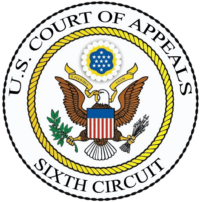Originally published on Forbes.com Nov 14th, 2012
John Ratzenberger is best known as being an actor. I know that actors are not their roles, but it is easy to fall into that trap. From his website, I learned that he is a really serious guy interested in preserving manufacturing in this country. When I read a tax case about someone entering into an ill fated business venture with him, I cannot help myself from thinking about his best known role, somebody whose name everybody knows, Cliff Claven
Here is the story from a recent Sixth Circuit decision.
In early 2000, Alioto hired John Ratzenberger (“Ratzenberger”), an actor famous for his role on the television show Cheers, to speak at a conference relating to Alioto’s business. Ratzenberger approached Alioto about a new business venture, called Big Red Tent (“BRT”), which was to involve using “celebrity talent” to “create short form media that would be sold to corporations” as internet advertisements.
Alioto testified that he agreed to join the venture as a CEO and agreed to provide services including setting up the office operations and meeting with investment and venture firms to raise capital for the business. During 2000 and 2001, Alioto proceeded to spend approximately $200,000 of his own money on expenses related to BRT. Alioto contends that he believed he would be reimbursed by Ratzenberger for all of the BRT-related expenses.
Big Red Tent turned out to not be such a great idea.
Ultimately, Alioto testified that he “removed from the situation in mid 2001” because the business was a financial “drain” on him.
Mr. Alioto was reimbursed for some of his expenses but, at least by his reckoning, not all of them. He kept trying to contact Mr. Ratzenberger. Finally, in 2005, he received an email that indicated there would be no further reimbursements. So he took the balance as a business loss in 2005. As an alternative argument he asserted a theft loss.
He lost in Tax Court and the Sixth Circuit agreed. His biggest problem was lack of documentation. In order to take the loss in 2005, he had to prove that it had not been incurred in a much earlier year. Mr. Alioto had not saved the 2005 email from Mr. Ratzenberger that convinced him that there would be no further reimbursements. As far as a theft loss theory went:
The Tax Court found that “here is nothing in the record that would prove that Mr. Ratzenberger committed any wrongdoing. Mr. Alioto did not present any evidence demonstrating that Mr. Ratzenberger or his agents did anything illegal and failed to show any specific promises or agreements made by Mr. Ratzenberger and his agents.”
There are two lessons from this case. The first is to take a loss in the earliest possible year. If it turns out that the IRS argues you should have waited, you at least have the possibility to take the loss in a later year. The other is to keep documentation – the more the merrier. If Mr. Alioto had kept a Big Red Tent folder with copies of correspondence and emails, he might have done a lot better.
A Blogging Milestone
I started blogging in earnest in June of 2010. I have been at it long enough that I have already seen a few cases, I have written about, have appeals decided. The Alioto case is the first one that I’ve noted where the original piece was on Forbes.com. I started on Forbes.com in July of 2011. The Alioto Tax Court decision is one of my earliest Forbes posts. The title was Cliff Is Not A Thief. I really should do something to celebrate. Next time I am in Boston, I know just the place to go.
You can follow me on twitter @peterreillycpa.































































































